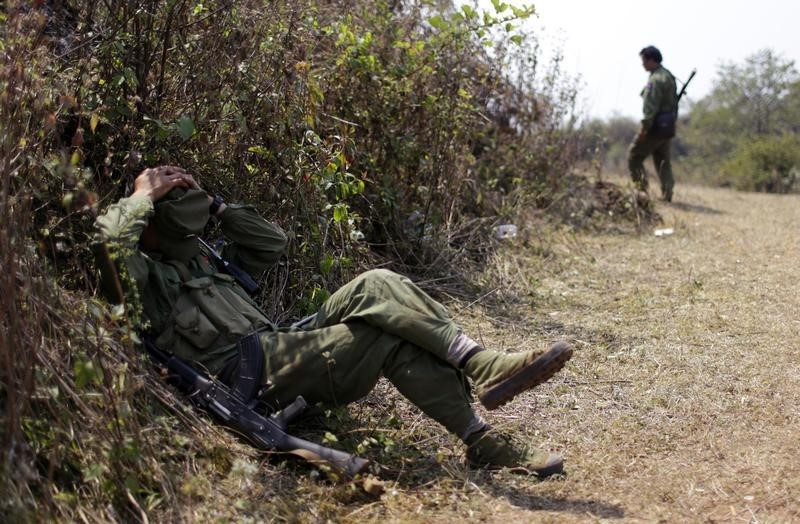By Aung Hla Tun
YANGON (Reuters) - The United States led international praise on Tuesday for a draft ceasefire accord between Myanmar's government and ethnic rebel groups, a move aimed at ending more than 65 years of armed conflict in the country.
Myanmar's semi-civilian government, which took power in 2011 after 49 years of military rule, has made ending hostilities with the many groups that have taken up arms since independence in 1948 one of its priorities.
This week's meetings were the latest of seven rounds of talks to negotiate the agreement since 2013. The government had targeted reaching a deal before a general election expected to take place in November this year.
Myanmar President Thein Sein attended the ceremonial signing by government and ethnic rebel negotiators. Ethnic representatives will now take the draft document to the leaders of the rebel groups.
"A nationwide ceasefire agreement would mark a potentially historic step towards achieving peace and national reconciliation, which has eluded the country for decades," the U.S. embassy said in a statement.
The United Nations called the draft agreement a "significant achievement" and a first step towards larger political negotiations. Canada also lauded the achievement.
"Today's agreement is a signal that new levels of trust, confidence and cooperation are possible between former enemies and that the seeds of change in Myanmar are beginning to sprout," Vijay Nambiar, the U.N. special adviser on Myanmar, said in a statement.
Myanmar's authorities have been unsuccessful in meeting previous targets for concluding nationwide peace pacts. Sporadic resurgences of violence and complaints about the military's role in the complex process have hampered progress.
The United Nationalities Federal Council, an umbrella organization representing ethnic armed groups, warned during the latest round of talks that a meaningful ceasefire cannot be agreed while Myanmar's military continues offensives against ethnic groups.
Thein Sein declared a state of emergency in a region near the Chinese border in February after fierce fighting between the army and the Kokang ethnic Chinese rebel group, which is not part of the peace process.
Aung Min, a government negotiator, said the government would concentrate first on signing the accord with the 16 groups that are currently taking part in negotiations, and then reach out to those that aren't.
"Time is running short for us to involve all of them," he told reporters. "If we can find time, we'll try to involve the rest."

(This version of the story refiles to insert dropped word in introduction)
